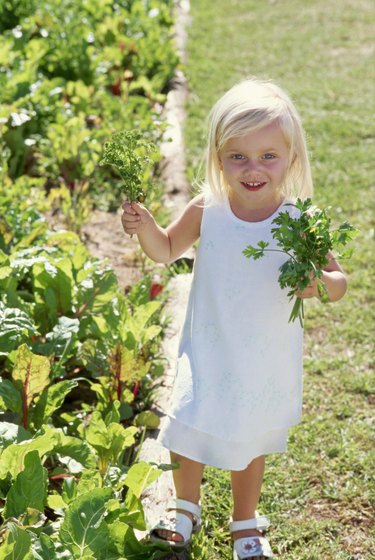
Potassium helps with plant growth and many plant functions. Lots of soils naturally have an acceptable amount of potassium, but some soils have low potassium levels. If soil tests reveal low potassium levels, it might be a good idea to make homemade fertilizer high in potassium to use when planting a garden.
Benefits
Video of the Day
Potassium helps with plant growth, protein production, plant hardiness, disease resistance, insect resistance and efficient water use. Plants without enough potassium grow slowly and can have yellow leaves. Homemade potassium fertilizer will help remedy these problems and ensure healthy plant growth.
Video of the Day
Making a Potassium Fertilizer
Wood ash makes an excellent homemade source of potassium for the garden. The University of Alaska Fairbanks recommends using 5 lbs. or 2.5 quarts of wood ash per 100 square feet of garden space.
Other Fertilizer Ingredients
To make a more balanced high-potassium fertilizer add some ingredients that contain nitrogen and phosphorous in the amounts that the garden needs. The University of Alaska Fairbanks recommends fish waste to provide natural nitrogen and ashes from bones to provide natural phosphorous. Homemade compost also provides a good combination of many other nutrients. Applying wood ash in combination with compost serves as a complete fertilizer high in potassium.
Application Methods
Some gardeners like to mix fertilizers in with irrigation water. Nutrient-rich water fertilizes plants well, but it can be easier to apply precise amounts of fertilizer to the garden when the fertilizer is in dry form. You also have the option to apply wood ash and other fertilizers separately or to mix them together. Separate applications allow more control over individual nutrient amounts, but mixes require less work because of their single application. To apply wood ash, sprinkle the ash evenly over the garden space.